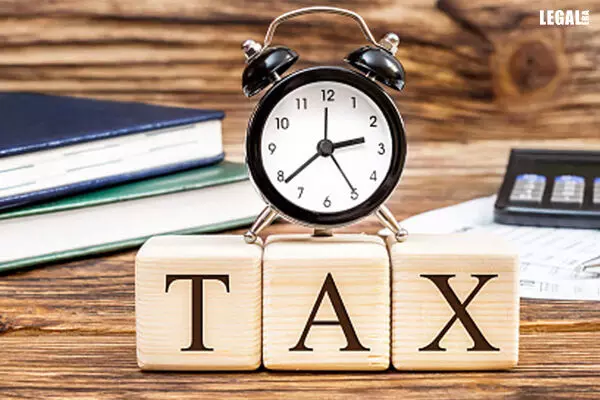- Home
- News
- Articles+
- Aerospace
- AI
- Agriculture
- Alternate Dispute Resolution
- Arbitration & Mediation
- Banking and Finance
- Bankruptcy
- Book Review
- Bribery & Corruption
- Commercial Litigation
- Competition Law
- Conference Reports
- Consumer Products
- Contract
- Corporate Governance
- Corporate Law
- Covid-19
- Cryptocurrency
- Cybersecurity
- Data Protection
- Defence
- Digital Economy
- E-commerce
- Employment Law
- Energy and Natural Resources
- Entertainment and Sports Law
- Environmental Law
- ESG
- FDI
- Food and Beverage
- Gaming
- Health Care
- IBC Diaries
- In Focus
- Inclusion & Diversity
- Insurance Law
- Intellectual Property
- International Law
- IP & Tech Era
- Know the Law
- Labour Laws
- Law & Policy and Regulation
- Litigation
- Litigation Funding
- Manufacturing
- Mergers & Acquisitions
- NFTs
- Privacy
- Private Equity
- Project Finance
- Real Estate
- Risk and Compliance
- Student Corner
- Take On Board
- Tax
- Technology Media and Telecom
- Tributes
- Viewpoint
- Zoom In
- Law Firms
- In-House
- Rankings
- E-Magazine
- Legal Era TV
- Events
- News
- Articles
- Aerospace
- AI
- Agriculture
- Alternate Dispute Resolution
- Arbitration & Mediation
- Banking and Finance
- Bankruptcy
- Book Review
- Bribery & Corruption
- Commercial Litigation
- Competition Law
- Conference Reports
- Consumer Products
- Contract
- Corporate Governance
- Corporate Law
- Covid-19
- Cryptocurrency
- Cybersecurity
- Data Protection
- Defence
- Digital Economy
- E-commerce
- Employment Law
- Energy and Natural Resources
- Entertainment and Sports Law
- Environmental Law
- ESG
- FDI
- Food and Beverage
- Gaming
- Health Care
- IBC Diaries
- In Focus
- Inclusion & Diversity
- Insurance Law
- Intellectual Property
- International Law
- IP & Tech Era
- Know the Law
- Labour Laws
- Law & Policy and Regulation
- Litigation
- Litigation Funding
- Manufacturing
- Mergers & Acquisitions
- NFTs
- Privacy
- Private Equity
- Project Finance
- Real Estate
- Risk and Compliance
- Student Corner
- Take On Board
- Tax
- Technology Media and Telecom
- Tributes
- Viewpoint
- Zoom In
- Law Firms
- In-House
- Rankings
- E-Magazine
- Legal Era TV
- Events
Sale consideration of software products not taxable as royalty under India-Singapore DTAA: ITAT

Sale consideration of software products not taxable as royalty under India-Singapore DTAA: ITAT
The bench cited the decision taken by the tribunal in the assessees' case during the previous financial years
The Delhi bench of the Income Tax Appellate Tribunal (ITAT) has held that the sale consideration of software products is not taxable as royalty under the India-Singapore Double Taxation Avoidance Agreement (DTAA).
The Coram of Saktijit Dey (judicial member) and Dr. BRR Kumar (accountant member) made the observation after an appeal was filed before ITAT by the assessee, Symantec Asia Pacific Pte Ltd.
The appeal was against the May 2019 order passed under the Income-Tax Act, 1961, for the Assessment Year 2016-17 in pursuance of the directions of the Dispute Resolution Panel (DRP).
The assessee, a non-resident corporate entity, is a tax resident of Singapore, incorporated under the country's laws. In September 2016, it filed an Income Tax Return (ITR) declaring 'Nil' income and claimed Rs.21,72,75,550 refund on account of the Tax Deducted at Source (TDS).
However, the Assessing Officer (AO) asked it to furnish various details, including, the revenue earned from India. He verified the documents, including the distributor agreement, general and administrative services agreement, and license agreement.
The AO held that the consideration received by the assessee from the sale of the software and maintenance and support services to the customers in India (directly or through authorized distributors, resellers, or service providers), was royalty under the IT Act and the provisions of the India-Singapore DTAA.
Thus, he held the consideration received from the sale of software and provision of services amounting to Rs.217,24,54,383 to be taxable in India as royalty at 10 percent on a gross basis.
Accordingly, the AO proposed a draft assessment order, against which the assessee raised objections before DRP.
Relying upon its own decision in the assessee's case in the Assessment Years 2013-2014 and 2014-2015, the DRP upheld the decision of the AO and turned down the objection of the assessee. Aggrieved by it, the assessee approached ITAT.
The assessee contended that the issue in dispute was squarely covered in its favor by the decisions of the tribunal and the jurisdictional high court in the previous years.
The bench stated, "While deciding the issue in the Assessment Year 2013-2014, the tribunal had held that the amount received by the assessee from the customers in India did not fit into the definition of royalty under DTAA. Identical views were expressed by the coordinate bench while deciding the appeal in the Assessment Year 2014-2015.
While deleting the addition made by the AO, the bench added, "It is a matter of record that appeals filed by the revenue department against the orders of the tribunal have been dismissed by the jurisdictional high court."


